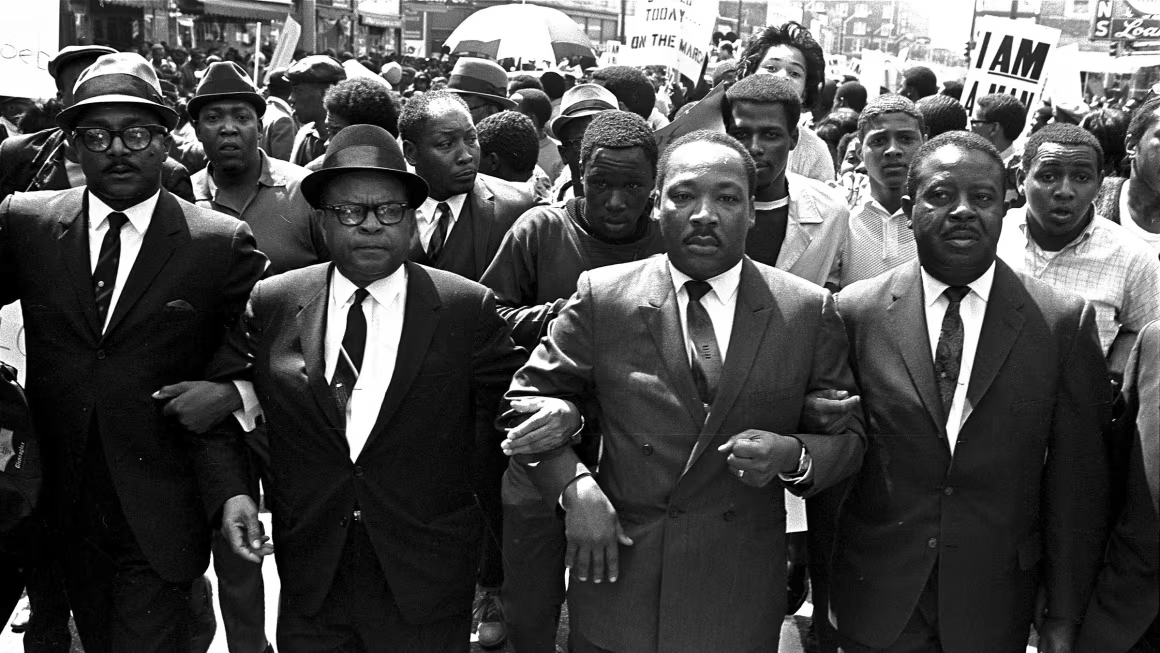US government releases FBI records on MLK Jr. despite his family’s opposition

The Trump administration on Monday released records of the FBI’s surveillance of Martin Luther King Jr., despite opposition from the slain Nobel laureate’s family and the civil rights group that he led until his 1968 assassination.
The digital document dump includes more than 240,000 pages of records that had been under a court-imposed seal since 1977, when the FBI first gathered the records and turned them over to the National Archives and Records Administration.
In a lengthy statement released on Monday, King’s two living children, Martin III, 67, and Bernice, 62, said their father’s killing has been a “captivating public curiosity for decades.” But the pair emphasized the personal nature of the matter and urged that the files “be viewed within their full historical context.”
The Kings got advance access to the records and had their own teams reviewing them. Those efforts continued even as the government granted public access. Among the documents are leads the FBI received after King’s assassination and details of the CIA’s fixation on King’s pivot to international antiwar and antipoverty movements in the years before he was killed. It was not immediately clear whether the documents shed new light on King’s life, the Civil Rights Movement or his murder.
Intense personal grief
“As the children of Dr. King and Mrs. Coretta Scott King, his tragic death has been an intensely personal grief—a devastating loss for his wife, children, and the granddaughter he never met—an absence our family has endured for over 57 years,” they wrote. “We ask those who engage with the release of these files to do so with empathy, restraint, and respect for our family’s continuing grief.”
They also repeated the family’s long-held contention that James Earl Ray, the man convicted of assassinating King, was not solely responsible, if at all.
A statement from the office of Director of National Intelligence Tulsi Gabbard called the disclosure “unprecedented” and said many of the records had been digitized for the first time. She praised President Donald Trump for pushing the issue.
Trump promised as a candidate to release files related to President John F. Kennedy’s 1963 assassination. When Trump took office in January, he signed an executive order to declassify the JFK records, along with those associated with Robert F. Kennedy’s and MLK’s 1968 assassinations.
The government unsealed the JFK records in March and disclosed some RFK files in April.
A conservative King
The announcement from Gabbard’s office included a statement from Alveda King, Martin Luther King Jr.’s niece, who is an outspoken conservative and has broken from King’s children on various topics—including the FBI files. Alveda King said she was “grateful to President Trump” for his “transparency.”
Besides fulfilling Trump’s order, the latest release means another alternative headline for the president as he tries to mollify supporters angry over his administration’s handling of records concerning the sex trafficking investigation of Jeffrey Epstein, who killed himself behind bars while awaiting trial in 2019, during Trump’s first presidency.
“Trump releasing the MLK assassination files is not about transparency or justice,” said the Rev. Al Sharpton. “It’s a desperate attempt to distract people from the firestorm engulfing Trump over the Epstein files and the public unraveling of his credibility among the MAGA base.”
Sealed
The King records were initially intended to be sealed until 2027, until Justice Department attorneys asked a federal judge to lift the sealing order early. Scholars, history buffs and journalists have been preparing to study the documents for new information about his assassination on April 4, 1968, in Memphis, Tennessee.
The Kings said they “support transparency and historical accountability” but “object to any attacks on our father’s legacy or attempts to weaponize it to spread falsehoods.”
Opposition to King intensified even after the Civil Rights Movement compelled Congress and President Lyndon B. Johnson to enact the Civil Rights Act of 1964 and the Voting Rights Act of 1965.
After those victories, King turned his attention to economic justice and international peace. He criticized rapacious capitalism and the Vietnam War. King asserted that political rights alone were not enough to ensure a just society. Many establishment figures like Hoover viewed King as a communist threat.
King was assassinated as he was aiding striking sanitation workers in Memphis, part of his explicit turn toward economic justice.
Ray pleaded guilty to King’s murder. Ray later renounced that plea and maintained his innocence until his death in 1998.
AFP is one of the world's three major news agencies, and the only European one. Its mission is to provide rapid, comprehensive, impartial and verified coverage of the news and issues that shape our daily lives.

















